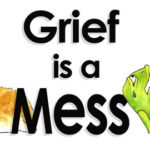
Harvard Business Review recently posted an exceptional article on coping with the confusion and uncertainty that comes with life transitions. It’s longer than my usual posts, but I think you will enjoy it.
LEARN TO GET BETTER AT TRANSITIONS, by Avivah Wittenberg-Cox
There is a small, disheveled baby robin making her very first steps in my garden today. She looks a bit dazed and exhausted, her lovely yellow down all awry. I know exactly what she feels like. She looks like a lot of people I know right now. At almost every age, everyone seems to be on the cusp of a similar transition: taking their first steps into an uncertain and illegible new world. As I write this, World War II planes fly overhead to celebrate Queen Elizabeth’s official birthday. Like my own mother, who shares her birthday, she is turning 93. They are both remarkably well, and not finished with transitions.
At just shy of 57, I feel poised between these two ends of the spectrum, the baby bird and the great-grandmother. From this middle spot, I can observe my entire family hanging, in a seemingly collective cliff ritual, on the edge of change. We are all transitioning — quasi-simultaneously and quite unexpectedly — into our next chapters. My daughter is graduating college. My son is starting his first company. My husband is adapting to something he resists calling retirement. My mother has just been fitted with her first hearing aids and is suddenly complaining about the noise of the sirens in the city. Not to mention my trio of good friends, one who lost a job, one who moved countries, and one who split from her partner.
Every one of this cross-generational crew is struggling to let go of what was (identity, community, colleagues, and competencies) to embrace what’s next (as yet unknown, undefined, and ambiguous). There is a mixture of fear (Who am I?) and excitement (I am SO ready for a change), confusion (What do I want?) and certainty (Time to move on).
Because more of us are living longer, healthier lives, we’ll face more of these moments of liminality. And so I’m sitting in the garden, watching Robin Jr. test her fledgling wings, researching how to prepare for the several decades still ahead. No matter where we are in our own journeys, we could all get better at the skill of transitioning. To do this, focus on four component skills:
- Measure out your life to date in major chapters. Erik Erikson mapped out adulthood in 7-year periods. What were the highlights, accomplishments and learnings of each of your past 7-year periods?
- How many 7-year periods do you have before you hit 100?
- Draw a timeline from 0 to 100 and place yourself on it. This gives you an idea of the possible length of the road ahead.
- Choosing to choose gives you agency. The choice itself, sometimes made years before you actually move, is the first, and often the biggest, step.
- Ask yourself if you are staying where you are out of love, or out of fear. Do you love where you are, or do you fear leaving it for a murky unknown? The latter is a lousy place from which to live, but many of us stay stuck here. Who would I be without this title, this salary, or this position? It can be an exciting question, not a scary one.
- Embrace confusion, ambiguity, and questions. There re-definition lies. And remember, you don’t have to face them alone.
- What have you most enjoyed in your career to date?
- What kind of people energize you, and what kind of environments shut you down?
- Do you want to transfer skills or start from scratch and reinvent? Build on accomplishments or never hear of them again?
- What kind of balance will you prioritize for this phase? Focus on one thing or cumulate a series of side-hustles into a portfolio life?Do you want to anchor security or toss it to the winds?
In this journey, which can take a few years, you’ll want to pack a comforting “travel bag”: an advisory board of trusted supporters, a realistic timeline, a financial plan, and clearly negotiated support from your partner if you have one. Rome wasn’t built in a day and preparing for the next third of your life requires more than updating your LinkedIn profile. Invest in the next phase as you would in any 7-year project. Seriously.
Letting the outside in. Any transition plan will benefit from a feedback from the outside world. Essentially, you are market-testing your new plan, and figuring out where you are most needed and appreciated. Clare and Mark thought that when they reached their early sixties, they’d retire and leave their UK base to live in a new country. So, in their fifties, they took a sabbatical from work and lived in four different countries for three months each to find the perfect place. In the end, this experience helped them decide to enter a new profession instead of a new country. They decided to move to a new home just an hour from where they’d been living and start an eco-friendly farm, fulfilling a long-held passion for sustainability and food.
- What do others most appreciate about you?
- What have you done or worked on that elicits the best response, the most appreciation or follow-up?
- Which of your experiments have attracted the kind of questions, people, or projects that excite you?
- When, where, and with who did you feel most alive?
Leaping. When you see people who have transitioned successfully to a new phase and invested in something they deeply care about, sometimes for the first time in their lives, it is an inspiring sight. Some people only really find, or allow themselves to find, their calling after they’ve fulfilled all their duties — to their own earlier expectations, to parents, to family. The freedom that comes from finally aligning with yourself is profound. Neither fame nor fortune can feed the unsatisfied soul. As Erich Fromm wrote half a century ago, “The whole life of the individual is nothing but the process of giving birth to himself; indeed, we should be fully born when we die — although it is the tragic fate of most individuals to die before they are born.”
Now that we have a few extra decades to test our wings, the real challenge may be remembering that it’s never too late to fly.






























